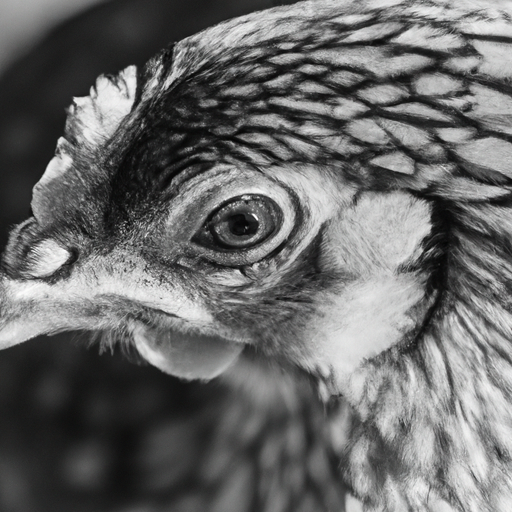Have you ever wondered about the differences between hybrid chickens and heritage breeds? Well, wonder no more! In this article, we will explore the distinct characteristics and qualities that set these two types of chickens apart. From their origins and appearances to their traits and purposes, you will gain a deeper understanding of the fascinating world of chickens and their diverse breeds. So, whether you’re a seasoned chicken enthusiast or simply curious about these feathered creatures, read on to discover how hybrid chickens differ from heritage breeds.
Overview
Definition of hybrid chickens
Hybrid chickens are the result of crossbreeding two or more different breeds of chickens to create a new and improved hybrid that possesses desirable traits from each parent breed. These hybrids are typically bred for their high egg production, faster growth rate, and disease resistance.
Definition of heritage breeds
Heritage breeds are traditional, purebred chicken varieties that have been around for centuries and have developed naturally over time. They often have historical and cultural significance and are known for their unique characteristics, adaptability, and ability to thrive in specific environments.
Genetics
Crossbreeding in hybrid chickens
The genetics of hybrid chickens involve intentionally crossing different breeds to create a hybrid offspring that inherits specific characteristics from each parent breed. This selective breeding process results in hybrids that have a combination of traits such as high egg production, uniformity in size and weight, and disease resistance.
Purebred genetics in heritage breeds
Heritage breeds, on the other hand, maintain their purebred genetics through natural mating and selective breeding within the same breed. These chickens are bred to preserve the characteristics and genetic diversity that have developed over generations, resulting in a breed that is often well-suited to its environment and has distinct physical and behavioral traits.
Physical Attributes
Variations in size and weight
Hybrid chickens are typically bred to have a consistent size and weight, which makes them more efficient in commercial production. They often reach maturity faster and have a larger body size compared to heritage breeds. In contrast, heritage breeds exhibit more variation in size and weight, reflecting the diversity within the breed and their ability to adapt to different environments.
Plumage characteristics
Hybrid chickens are commonly bred for their efficient egg production, which often leads to compromises in plumage characteristics. Many hybrid breeds have less vibrant or diverse plumage compared to heritage breeds. Heritage breeds, on the other hand, often showcase a wide range of beautiful and unique feather colors and patterns, which are a result of their ancestral heritage and natural genetic diversity.
Egg Production
Hybrid chickens’ high egg production
One of the main advantages of hybrid chickens is their exceptional egg-laying capabilities. These hybrids are prolific layers, often producing significantly more eggs compared to heritage breeds. Their high egg production makes them ideal for commercial egg farmers who rely on consistent and abundant egg supplies.
Heritage breeds’ lower egg production
In contrast to hybrids, heritage breeds are not bred primarily for their egg-laying abilities. While they can still lay a substantial number of eggs, their production tends to be lower than that of hybrids. However, heritage breeds often compensate for this lower egg yield with other valuable traits, such as excellent meat quality, superb foraging abilities, or unique flavors in their eggs.
Broodiness
Hybrid chickens’ lack of broodiness
Broodiness refers to a hen’s natural inclination to sit on eggs and incubate them until they hatch. Hybrid chickens are generally less prone to broodiness due to the selective breeding that prioritizes continuous egg production. This behavior makes them suitable for commercial egg production as it ensures a steady supply of eggs throughout the year.
Heritage breeds’ tendency to go broody
Unlike hybrids, many heritage breeds have a strong instinct to go broody. This broodiness can be a desirable trait for backyard chicken keepers looking to hatch their own chicks without the need for artificial incubation. Heritage hens will diligently incubate eggs, providing excellent care until the chicks hatch, preserving the natural reproductive cycle of chickens.
Temperament
Hybrid chickens’ docile temperament
Hybrid chickens are often known for their docile and calm temperament, making them easier to handle and manage. This friendly disposition can make them more suitable for backyard flocks, especially for families with children or individuals looking for a pleasant and low-maintenance chicken experience.
Heritage breeds’ diverse temperaments
Heritage breeds, by nature, exhibit a broader range of temperaments. While some heritage breeds may also have a friendly demeanor, others can display more independent or skittish behaviors. This variety in temperament adds to the diversity and charm of heritage breeds, appealing to those who appreciate the distinct personalities and behaviors of chickens.
Sustainability
Hybrid chickens’ commercial viability
The hybrid chicken industry has experienced tremendous growth and popularity due to the significant advantages these birds offer in commercial settings. Their high egg production, fast growth rate, and disease resistance make them highly marketable and economically viable, allowing farmers to meet the demands of a large-scale egg or meat production operation.
Heritage breeds’ preservation of genetic diversity
Heritage breeds play a crucial role in maintaining genetic diversity within the chicken population. By preserving and breeding these traditional breeds, efforts are made to safeguard genetics that have adapted to specific climates, environments, or historical contexts. This preservation is important for the long-term sustainability and genetic resilience of the overall chicken population.
Disease Resistance
Hybrid chickens’ enhanced disease resistance
Hybrid chickens are often bred with a focus on disease resistance, making them less susceptible to common poultry illnesses. This selective breeding helps protect these birds from widespread diseases, reducing the need for constant medical intervention and promoting better overall flock health in commercial operations.
Heritage breeds’ natural resistance
Heritage breeds, developed over generations, have naturally acquired resistance to certain diseases or environmental conditions. These breeds have often adapted to specific regions, climates, or challenges over time, resulting in increased resilience to local diseases. This natural resistance can be an advantage for backyard chicken keepers or sustainable farming practices that aim to minimize the use of medications or artificial interventions.
Adaptability
Hybrid chickens’ adaptability to various climates
Hybrid chickens are bred to be versatile and adaptable to different climates and environments. This adaptability allows them to thrive in a wide range of conditions and makes them suitable for commercial egg or meat production operations worldwide. Their ability to acclimate to different climates ensures consistent production and reduces the risk of productivity loss due to extreme weather conditions.
Heritage breeds’ adaptability to specific environments
Heritage breeds, having been naturally selected over time, have often developed specific adaptations to certain regions or environments. These breeds excel in environments where their ancestors originated, showcasing their ability to flourish in specific climates, landscapes, or foraging conditions. Their natural adaptability makes them a valuable choice for small-scale or localized farming, allowing chickens to thrive in their respective environments.
Longevity
Hybrid chickens’ shorter lifespan
Due to their rapid growth and high egg production, hybrid chickens generally have shorter lifespans compared to heritage breeds. The intense physical demands placed on their bodies may result in a shortened lifespan, with some hybrids commonly reaching maturity, experiencing peak egg production, and declining in health faster than heritage breeds.
Heritage breeds’ longer lifespan
Heritage breeds are often recognized for their longevity and overall hardiness. They typically have longer lifespans compared to hybrids, allowing for more extended periods of productive egg-laying, successful reproduction, and a healthier aging process. The longer lifespan of heritage breeds can be advantageous for individuals looking for long-term companionship or sustainable egg production within a smaller flock setting.
In conclusion, hybrid chickens and heritage breeds offer distinct advantages and characteristics. Hybrids are bred for high egg production, consistent size, and disease resistance, making them commercially viable choices. On the other hand, heritage breeds prioritize genetic diversity, adaptability to specific environments, and showcase unique physical and behavioral traits. Whether you are a commercial farmer aiming for efficiency or a backyard chicken enthusiast appreciating diversity, both hybrid chickens and heritage breeds have something valuable to offer.




